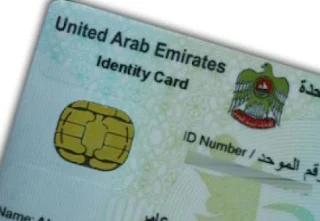DUBAI, United Arab Emirates (AP) — Emirati authorities seeking greater control over smartphone data are pushing ahead with plans to impose tighter restrictions on the most tough-to-monitor BlackBerry service next week, according to a senior telecom executive.
The proposed new rules, outlined earlier this month, have renewed questions about how far the United Arab Emirates is willing to go in allowing highly secure communications within its borders.The Gulf Arab federation threatened a far more sweeping ban on BlackBerry email and other services last year, but reversed that decision shortly before it would have taken effect.
Osman Sultan, chief executive of the telecommunications firm Du, told reporters Monday the latest policy ordered by regulators will go into effect May 1. He said he doesn't expect the shift to cause problems for customers, who will still have access to email, Web browsing and instant messaging.
Under the new policies, Du and its rival Etisalat — both majority owned by the government — are required to limit access to the Blackberry Enterprise Server to companies with 20 user accounts or more. That system provides the most secure communication on the handheld devices and is used by many international companies and government agencies.
Other users would need to rely on a less-secure system known as the BlackBerry Internet Service that experts say could be easier for authorities to monitor. Unlike the more secure BES system, which routes encrypted data through company servers abroad, the BIS system runs over the regular Internet.
"I don't see any reason for frustration for customers," Sultan said. "You can still access your corporate email via BIS. ... I don't see what really is the issue."
Shortly after details of its latest planned restrictions became public, the Telecommunications Regulatory Authority issued a brief statement reassuring BlackBerry users that all services would continue for both individuals and business customers. That prompted speculation it might roll back plans to limit the higher-security service.
It has not commented further on the matter since. It did not respond to a request for clarification Monday.But Sultan's comments suggest the restrictions are still moving ahead."The rule is still this rule," he said.
Research in Motion Ltd., the Canadian company that makes BlackBerrys, has previously said it is in contact with the regulator and understands that the rules could apply to other smartphone makers but aim to avoid affecting "legitimate enterprise customers." A spokeswoman said the company had nothing more to add Monday.
The UAE's smartphone policies have been closely watched since last summer when it threatened to shut off BlackBerry data services partly because of security concerns. It backed off the plan in October.
Critics saw the effort as a way to more closely monitor political activism in the federation. Although the UAE has seen none of the widespread unrest roiling other parts of the Arab world, authorities have detained at least four activists calling for democratic reforms in recent weeks.
In 2009, Du's rival Etisalat was caught instructing unwitting BlackBerry customers to download spy software that could allow outsiders to peer inside. It misled users by describing the software as a required service upgrade.







